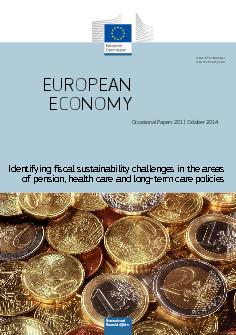Strack, P. & Viefers, P. (2014) “Regret and economic decision-making“, VoxEU Organisation, 16 October. Regret can shape preferences and thus is an important part of the decision-making process. This column presents new findings on the theoretical and behavioural implications of regret. Anticipated regret can act like a surrogate for risk aversion and could deter investment. However, once people have invested, they become attached to their investment. This commitment is …Read More
Χρονολόγιο: η Εξέλιξη της Οικονομικής Διακυβέρνησης της ΕΕ στο Ιστορικό της Πλαίσιο,
Timeline: The Evolution of EU Economic Governance in Historical Context, European Commission, 16 October. Economic governance in the EU has been reinforced and refined over time, evolving in the context of historical developments. This timeline is interactive. Many of the texts include links to legislation and background information. Download the timeline in PDF (790 kB).
Maximising happiness does not maximise welfare
Glaeser, Ε., Gottlieb, J. & Ziv, O. (2014) “Maximising happiness does not maximise welfare“, VoxEU Organisation, 15 October. Governments are now measuring happiness, or subjective wellbeing, and some have begun trying to maximise it. This column discusses recent research showing that happiness is not the same thing as utility. The choices people make suggest that they have desires and objectives other than happiness. It is therefore possible to make …Read More
A New Age Of IMF Bailouts – Great Britain In The 1970s
Tavares, E. M. (2014) “A New Age Of IMF Bailouts – Great Britain In The 1970s“, ΘZeroHedge, 12 October. Hearing of IMF interventions generally conjures up images of developing nations (and the occasional Eurozone peripheral economy of late) facing some kind of financial difficulty. But it was actually Great Britain, the cradle of the industrialized world, which in 1976 became one of the first countries ever to be “bailed …Read More
Fighting Deflation: Would QE work in the euro area?
Gros, D. (2014) “Fighting Deflation: Would QE work in the euro area?“, Economic Policy, CEPS Commentaries, 09 October. With inflation in the eurozone stubbornly remaining on a downward trajectory, pressure is growing on the ECB to do “something” to prevent outright deflation. But, given the financial structure of eurozone countries, would the preferred “something” – quantitative easing – actually do the trick? Relevant posts: Wyplosz, C. (2014) “Is …Read More
Making the Most of EU Labour Mobility
Barslund, M. & Busse, M. (2014) “Making the Most of EU Labour Mobility“, Social welfare policies, CEPS Task Force Reports, 07 October. This Task Force report combines the most recent data from Eurostat with national sources to highlight the most significant labour mobility trends within the EU. Overall, the recent recession has not induced previously immobile workers to become more mobile, at least not in the larger member states. …Read More
Implementing economic reforms – are EU Member States responding to European Semester recommendations?
Deroose, S. & Griesse, J. (2014) “Implementing economic reforms – are EU Member States responding to European Semester recommendations?“, ECFIN Economic Brief, Issue 37, October 2014. Summary: For the past four years, the EU has issued country-specific recommendations for economic reform to its Member States under the European Semester. A synthetic indicator of EU-wide implementation of these recommendations shows a score of just over 40%. While this is higher …Read More
Europe is suffering from a psychological blind spot over migration in the Mediterranean
Zaiotti, R. (2014) “Europe is suffering from a psychological blind spot over migration in the Mediterranean“, LSE EUROPP, 10 October. The death of migrants in the Mediterranean remains a significant problem for EU migration policy. Ruben Zaiotti argues that Europe’s approach to the issue can effectively be termed a type of ‘externalisation’, in which the responsibility for migration has been off loaded to origin and transit countries. He writes …Read More
Beware of Europe’s Policy Hardening
El-Erian, Α. Μ. (2014) “Beware of Europe’s Policy Hardening“, Bloomberg View, European Economy, 10 October. Judging from the recent remarks by European officials, policy positions are hardening once again in the euro zone. Fueled by disappointing economic performance, the risk is that the deepening difference in views in Europe will further complicate a much-needed recovery. This is regrettable because it need not be so. Having flirted with a disorderly …Read More
Identifying fiscal sustainability challenges in the areas of pension, health care and long-term care policies
Eckefeldt, P., Schwierz, C., Giamboni, L., Aarnout, M. & Carone, G. (2014) “Identifying fiscal sustainability challenges in the areas of pension, health care and long-term care policies“, European Economy – Occasional Papers, No. 201, European Commission: Economic and Financial Affairs, October. This paper presents a horizontal assessment framework used by the Commission services to identify structural-fiscal reforms that are deemed necessary to address fiscal sustainability challenges in the Member …Read More





